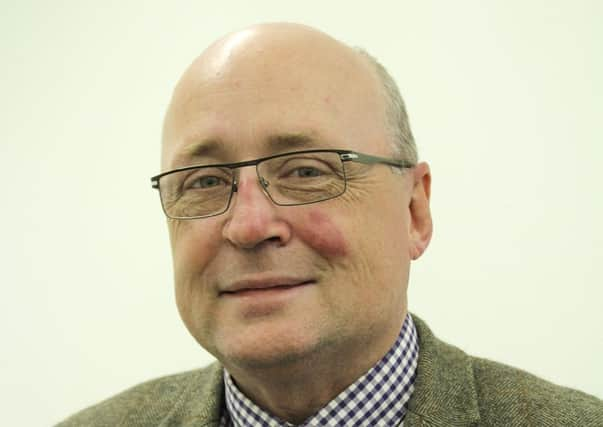Doctors make decisions based on likely clinical outcomes, not ‘value of life’ judgements – Dr Calum MacKellar


In these strange and difficult times of a Covid-19 pandemic new biomedical challenges can arise such as in the allocation of limited healthcare resources in an emergency setting when hospitals are overwhelmed with very ill patients. If such a situation does arise despite the heroic work of the NHS, it is being suggested that some form of healthcare rationing and selection of patients should take place based on reasonable and objective criteria. This is defined as ‘triage’ which is a French word expressing the idea of ‘sorting-out’ and reflects the manner (and on what basis) patients should be selected for limited healthcare treatments.
In a way, the problem is not new since even before the coronavirus came to the UK, clinicians have been making very similar difficult decisions. For example, because of the acute shortage of organs for transplantation, healthcare professionals have been selecting which patients should receive a lifesaving organ.
Advertisement
Hide AdAdvertisement
Hide AdIn making such a selection, however, it is important to remember that all human beings are absolutely equal in value and in worth. There is, therefore, no basis in a civilised society for racism (discrimination on race), ageism (discriminating on age) and ableism (discriminating on ability or disability). As Article 1 of the United Nations’ Universal Declaration on Human Rights indicates: ‘All human beings are born free and equal in dignity and rights.’ This means that equality in value and in worth is not a subjective aspiration, as some academics may suggest, but a very important reality – a fragile reality that must exist if a civilised society is to survive. In this regard, it is worth remembering from past historic experience about what may happen when this absolute equality in value and in worth of all persons is no longer recognised. Indeed, when this occurs, and when discrimination is seen as acceptable based on race, ability, age or even quality of life, society quickly collapses into barbarism and savagery. Some lives are then seen as unequal, meaning that they may be considered of lower worth or even expendable. If this happens, society may then believe that it may even be appropriate to actively terminate some lives.
This all means that, in an ideal world where no restrictions on healthcare resources are necessary, all individuals must be treated in an equal way based on requirements. Problems arise, however, when resources are limited. The only way frontline clinicians, engaged in the struggle against an epidemic, can then decide, ethically, which patients to treat is to select them on the perceived effectiveness of clinical outcomes and not on any other factors such as age. In this regard, it is important to remember that healthcare professionals are not trained nor entitled to make ‘quality of life’ or ‘value of life’ evaluations but only clinical decisions.
In other words, when resources are insufficient it is generally accepted that clinicians can select which patients are most likely to really benefit from the limited clinical procedures available and recover. This then means, for example, that an extremely healthy 80-year old with the coronavirus, who is likely to respond well to appropriate care, may be given priority for treatment over a very weak 20-year old with the same infection but who has many other very serious life-threatening health problems. This is because, even with the treatment, this young person may have a very low chance of survival. Thus, the decisions in an emergency, resource constrained, environment should be based on each individual patient and his or her likely future clinical outcome. This will then take into account the seriousness of the illness, the eventual presence and severity of other complications as well as the frailty of the patient.
Admittedly, making decisions based on such future prospects is not always easy for healthcare professionals since outcomes are difficult to predict and many patients react differently to treatment. In this context, trusting the clinicians to make the best decision they can based on their knowledge and experience is the only possible way forward.
Ideally, the triage decision should also be made by a small team of healthcare workers (and not by a single person) with significant experience of the treatment results. This removes responsibility for the decision from any one individual. Moreover, it is preferable that the healthcare workers in the clinical triage team be different to those actually caring for the patient.
Whatever decision is made concerning a patient, however, he or she should always be given the greatest care and compassion possible.
Dr Calum MacKellar, Director of Research of the Scottish Council on Human Bioethics
Comments
Want to join the conversation? Please or to comment on this article.